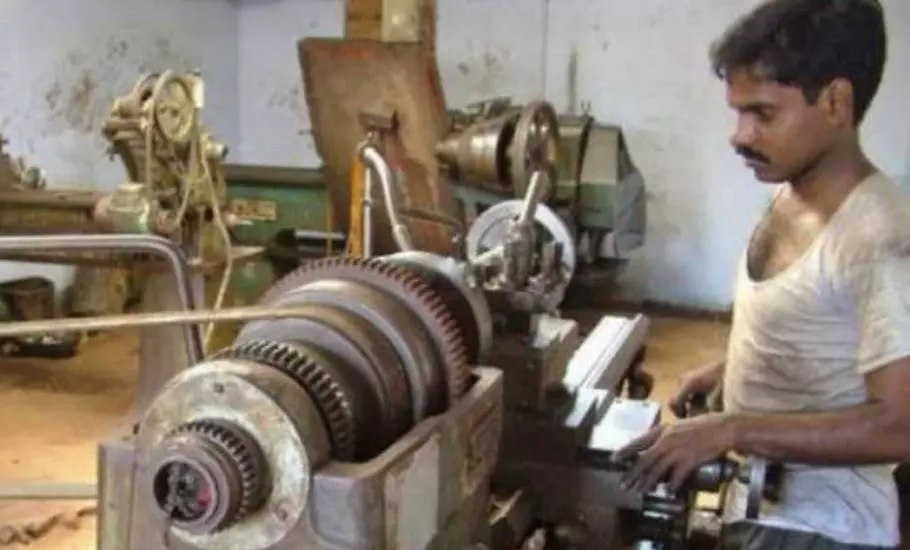
GST reforms are mere tokenism, don't address systemic issues: TN MSMEs
Structural changes, higher exemption thresholds for micro enterprises, genuine simplification, and consultation with stakeholders overlooked, say industry leaders

The GST Council’s sweeping overhaul — collapsing multiple tax slabs into a simplified two-rate structure of 5% and 18%, effective September 22 — has been hailed as the most significant reform since the launch of the Good and Services Tax regime in 2017.
But in Tamil Nadu, home to over 35.56 lakh MSMEs employing 2.56 crore people, the response is less enthusiastic. Praise from national chambers clash with the frustration of manufacturing hubs on the ground.
Union Finance Minister Nirmala Sitharaman said in a press conference yesterday (September 3) that the reforms have been framed with a focus on the common man and small entrepreneurs. “Every tax on the common man’s daily use items has undergone a rigorous review, and in most cases, the rates have come down drastically,” she told reporters.
Also read: GST reform shows how indirect taxes can be made even more indirect
Federations laud move
Tamil Nadu, which has the country’s second-largest MSME base, hosts industries spanning textiles, auto components, coir, footwear, leather, IT services, electronics, and biotechnology, to name a few. For many of these clusters, GST reform is not just a fiscal matter but a question of survival.
GST compliance pressure has already driven many players out. Current reforms would not bring them back. Then how can you call this a reform: Tamil Nadu State Planning Commission official
National bodies like the Confederation of Indian Industry (CII) welcomed the move. CII Director General Chandrajit Banerjee called the framework 'pathbreaking', saying it would ease compliance and strengthen demand.
The Utkal Chamber of Commerce and Industry Limited (UCCIL) echoed this optimism, predicting that higher consumer spending would trigger expansion and job creation.
Also read: GST reforms split Opposition States: Kerala protests, Tamil Nadu cautious
'Does not address core issues'
Meanwhile, Tamil Nadu industrialists have cautioned that the Centre’s messaging glosses over deeper challenges. KE Raghunathan, National Chairman of the Association of Indian Entrepreneurs, dismissed the announcements as cosmetic.
“Yes, GST reduction on items like carton boxes, solar cookers, and specific machine parts may ease costs for a few manufacturers. But these are product-specific tweaks, not sector-wide solutions. The vast majority of MSMEs, especially in textiles, food processing, and engineering, remain untouched by these changes. Let us not mistake marginal relief on selected products for systemic change,” he told The Federal.
Raghunathan argued that the GST Council’s claims of simplification were overstated.
'Mere tokenism'
“From four slabs it is reduced to two slabs. How do you call it two slabs by avoiding what existed earlier? This is tokenism, not reform. True reform requires structural change, higher exemption thresholds for micro enterprises, genuine simplification, and consultation with MSME stakeholders. Until then, these remain symbolic gestures,” Raghunathan said.
In Coimbatore, the state’s MSME powerhouse, the mood is even harsher. “They say slabs have been reduced for simplification, but moving us from 12% to 18% is no relief; it’s a burden,” M Ravindran, organiser of the Federation of Coimbatore Industries Association (FOCIA), told The Federal.
He explained that thousands of CNC-based job-order units are facing higher levies. “If a job order bill of Rs 1 lakh attracts 18% GST, and the payment comes only after three months, small industries face a severe cash crunch,” he said.
Also read: Why new GST rates are a shot in the arm for auto industry
Left unaddressed
A senior official in the Tamil Nadu State Planning Commission, speaking on the condition of anonymity, said there are structural flaws in the GST framework that the reforms do not address.
“For input tax credit, every subcontractor must be registered on the GST Network. In India’s industrial estates, most subcontractors are small entrepreneurs. Filing detailed returns every year, with auditors, is not how these tiny units are designed to work. This compliance pressure has already driven many of them out. Current reforms would not bring them back. Then how can you call this a reform?” he questioned.
The official highlighted that nearly 40% of SMEs in Tamil Nadu have shut down since the GST regime was rolled out, with thin margins making compliance costs unbearable. He also flagged pressures on Tamil Nadu’s export-oriented sectors.
“Exports of engineering and electronic goods are facing headwinds. Tariff-free global competition, coupled with GST pressures, means growth in these sectors has slowed instead of accelerating," he told The Federal.
For the state government, the concern is also fiscal. With compensation for revenue losses having ended in 2022, Tamil Nadu’s coffers are expected to shrink further. “The real impact of this GST reform will be felt by state governments. The promised 14% revenue growth guarantee never materialised. State revenues will now shrink further,” the Planning Commission official said.

